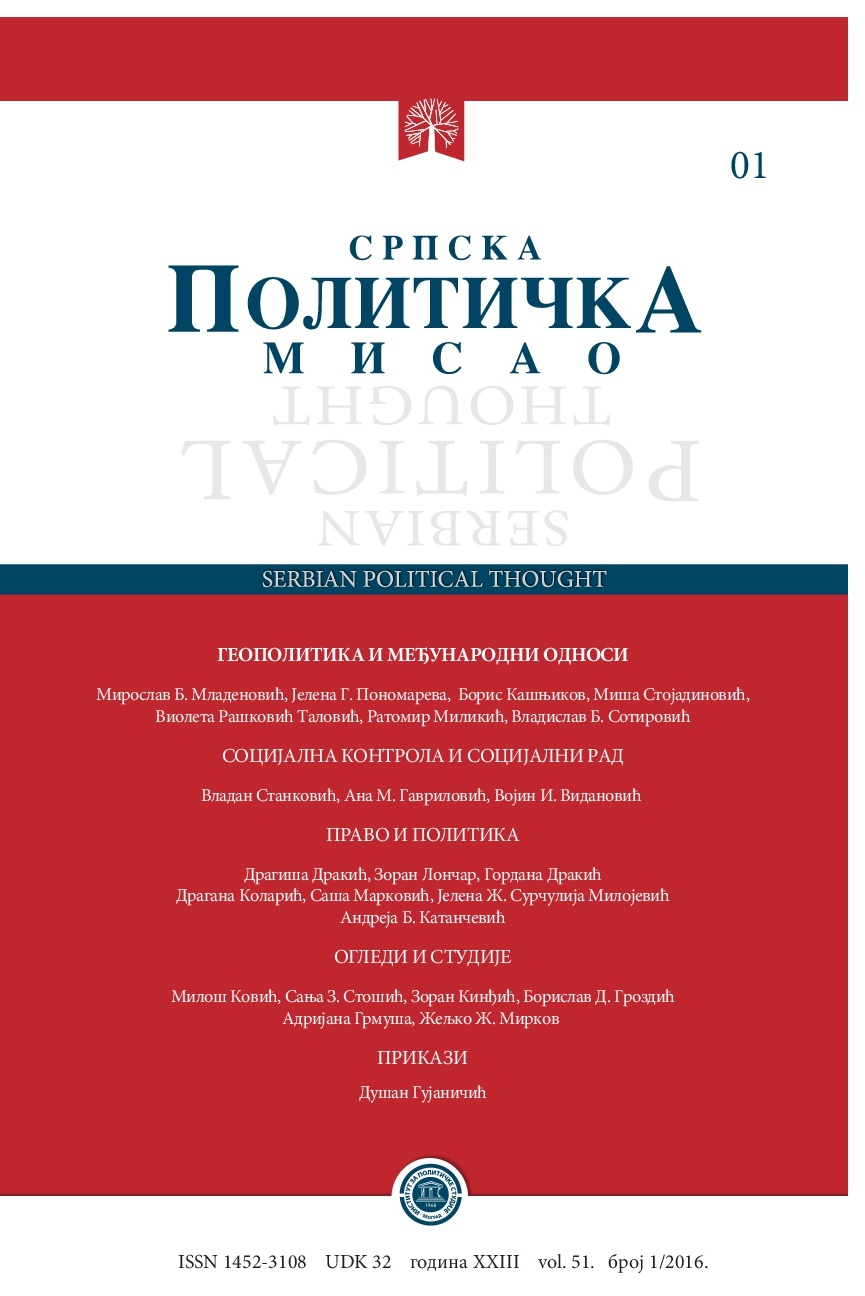Право мањина на слободу изражавања на сопственом језику: примена европског регулаторног оквира у Републици Србији
Right to Freedom of Expression in Minority Languages: The Implementation of European Regulatory Framework in the Republic of Serbia
Author(s): Jelena Surčulija MilojevićSubject(s): Media studies, Constitutional Law, Human Rights and Humanitarian Law, Recent History (1900 till today), Fiscal Politics / Budgeting, Ethnic Minorities Studies
Published by: Институт за политичке студије
Keywords: Freedom of Expression; Minority; Expression in Own Language; Privatisation; Public Service; Media Financing; Constitution; Media Laws;
Summary/Abstract: In the second half of the twentieth century, the important European documents that regulate protection of minorities were adopted. For the first time, the freedom of expression in minority languages is regulated and guaranteed. At the beginning of twenty- first century, after democratic changes in the Republic of Serbia, the new laws that were trying to incorporate the minority rights, were adopted. However, as it covered both the media law field and other legal fields (e.g. protection of national minorities, regulation of local and regional authorities), there have been many legal disputes and not all these laws have been not harmonized with each other. This lead to conflicts in implementing the regulations. For example, media laws prescribe that the state can not own any media and that the state owned media had to be privatized or its ownership transformed in some other way. On the other hand, non-media laws, such as the Law on the Capital – Belgrade or the Law on Local Authorities prescribe that local and regional authorities could establish and own the media. The second issue covered by the paper is the problem of privatization of state owned media that were broadcasting programs in minority languages. Firstly, it was regulated by a by-law, confirmed by the new Law on public information and media adopted in August 2014. Both documents say that whoever buys state-owned media that broadcast programmes in minority languages, has the obligation to keep such programme for another five years. The question is – what would happen with programmes in minority languages after five years? The paper suggests an urgent state strategy on this issue. Third issue may be that, as radio frequencies have not been digitalized yet, there may be no space in the frequency spectrum for the new radio stations that would apply to broadcast in minority languages. The paper concludes with the evaluation of the Council of Europe and the European Commission of the Republic of Serbia during the last decade on the issue on freedom of expression of minorities in their languages in media are presented. The main worry was financial sustainability of the Vojvodina’s second public service channel. This broadcast only in minority language, as for more than a year, the public service broadcasters in Serbia were financed from the state budget. The second worry was the access of minority media to frequencies and whether the Regulator took into consideration the broadcasting aimed at national minorities as a plus or not. Finally, how does the overall limitation of freedom of expression in Serbia has an influence on freedom of expression of minorities in their languages.
Journal: Српска политичка мисао
- Issue Year: 2016
- Issue No: 1
- Page Range: 199-219
- Page Count: 21
- Language: Serbian

